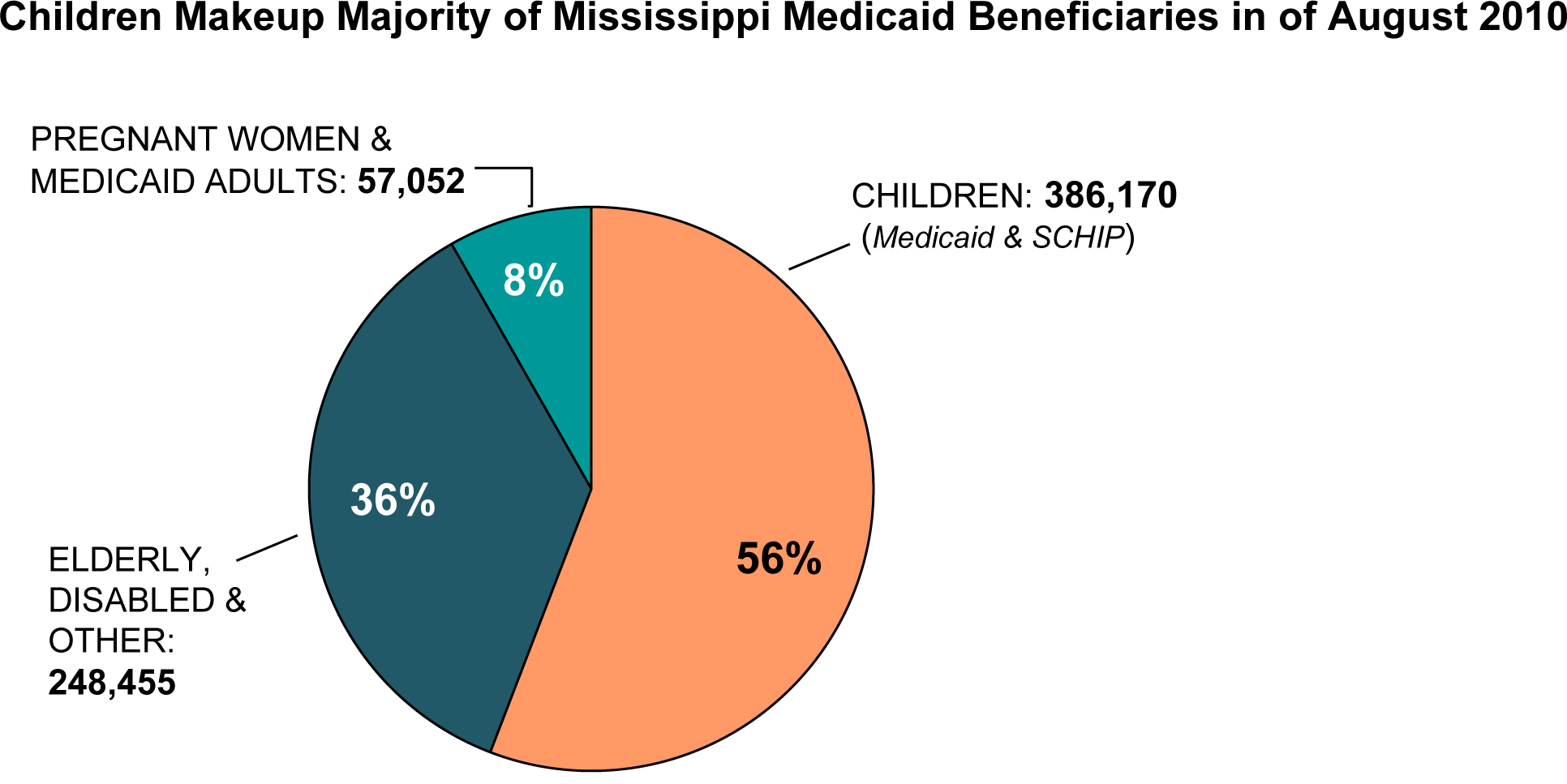Medicaid Funding Necessary to Support the Needs of Vulnerable Children and Elderly
September 24th, 2010
As our post earlier this week summarizes, the number of Mississippians covered by private health insurance has fallen substantially over the last decade. Over the same period, the number of individuals receiving public insurance is rising. More recently, as many Mississippians lose their jobs in the current recession, they have also lost employer-sponsored health insurance for themselves and their families. Yesterday, the Mississippi Division of Medicaid reported that the number of children, in particular, in need of health insurance through Medicaid has been rising as a direct result of the increased unemployment across the state.
In total, Medicaid has seen its average number of beneficiaries increase during this recession. In Fiscal Year (FY) 2007, an average of 565,125 Mississippians were covered by Medicaid. The Division of Medicaid reported yesterday that the number of beneficiaries grew to 615,497 in FY 2010. Medicaid now supports over 50,000 more residents in the state than it did before the recession began.
Taking a closer look at the latest Medicaid enrollment reveals that the 92 percent of enrollees are children, elderly adults, or disabled residents. The graphic below provides the most recent breakdown of Medicaid beneficiaries from August 2010.
Click to enlarge
In total, the Division of Medicaid is requesting $819.3 million from the general fund for FY 2010; this is about $200 million increase compared to the current fiscal year. Of that, $152 million is to replace ARRA funding, which will fade out this time next year.
As demand for this important health insurance program rises among Mississippi’s children, elderly and disabled, the state has fewer resources to meet their needs. The circumstances call for a balanced approach to building a budget that includes raising revenues.
Source:
Office of the Governor, Division of Medicaid. Fiscal Year 2012 Budget Presentation. September 22, 2010.
Author:
Sarah Welker, Policy Analyst






